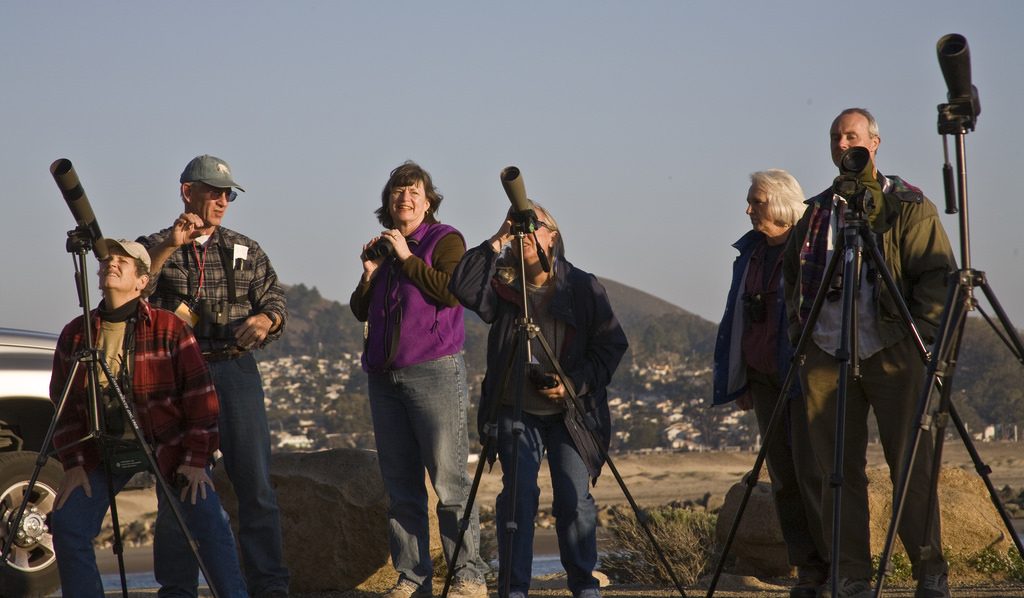Clearly, the normal functioning of the world’s activities has been upset by the coronavirus as I write this blog in mid-March 2020. Stores are closing, meetings are cancelled, travel plans postponed, and the grocery stores that remain open are having their shelves denuded of canned goods and toilet paper. We’re all trying to adjust to this new way of the world, but how does birdwatching factor in?
Well, it seems to me that if a small group of people (less than 10) meet somewhere (no carpooling) to do some birdwatching and everyone stays six or so feet apart, transmission of the virus ought to be minimized. Outside in the air, virus particles will quickly disperse to the four winds. Participants just need to be aware and courteous.

But what about bird festivals? Well, that poses a different problem. Organized birdwatching trips tend to have more than ten people and carpooling is typically the order of the day. That’s going to have to change. Indoor activities such as lectures, informal talks, hands-on workshops all need to be adjusted or canceled. Certainly the main venue where birders meet and greet and exchange sightings will have to be eliminated – no crowds allowed. But the Black Swamp Bird Observatory in Ohio, which runs the Biggest Week in American Birding festival every May, said the show will go on, at least for now. Kudos to them for announcing that cancellations will be refunded, no questions asked. But there are a significant number of cancellations at bird festivals across the country. Click here for a partial list.
Bird festivals take a lot of time and effort to organize and run, mostly by volunteers. Often the effort begins a year in advance. It usually takes years before the festival runs smoothly and enough visitors attend to make the festival a success. So to cancel one after a year of planning is a major disappointment. In addition to the festival a number of local entities are financially impacted – hotels, restaurants, retail shops, taxis, etc.
Cancelling a festival would be inconvenient to say the least and have a significant impact on local vendors of good and services, but the coronavirus is serious. The average age of a birdwatcher is around 55 and the coronavirus has the greatest impact on older folks. In China, for people 45 to 64, the fatality rate was about 0.5%; for those over 64, it was 2.7%, with a low and high estimate of 1.5% and 4.7%. Those statistics change daily, but this pandemic is serious.
Fortunately, birdwatching is one of those activities that lends itself to solo participation. Most of us, with little problem or effort, can birdwatch alone. Maybe it’s not as much fun and you won’t see as many birds with fewer eyeballs, but social isolation is what is required right now so that we can look forward to many more birding adventures when the coronavirus finally fades into the sunset.